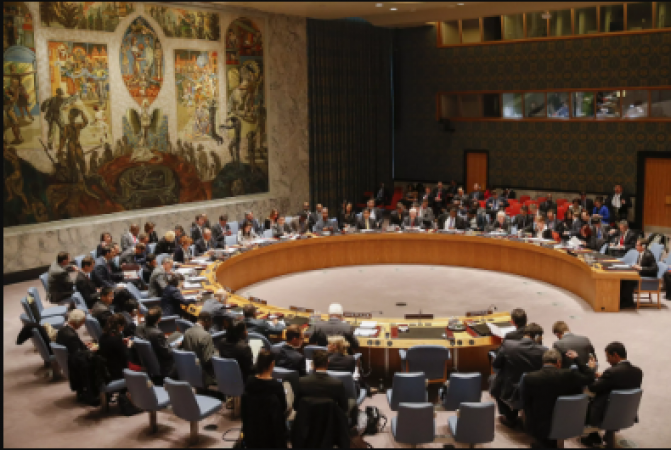
UNO: Ahead of the scheduled end of talks in five days, participants and observers believe there is still much work to be done before UN member states can agree on a treaty to protect the deep sea.
Delegates are gathering in New York on February 20 for the third "final" round of talks in less than a year after 15 years of formal and informal discussions.
Despite last week's progress, there are still many problems to be resolved, according to Nathalie Ray of the High Seas Alliance, a group of about 40 NGOs.
Also Read: Jill Biden: Joe Biden does intend to run for president once more
"We must pick up the pace in another week to make sure the treaty is finalised. I still believe it is conceivable," he continued.
Others, however, are less optimistic that a deal can be reached before the scheduled Friday deadline. Laura Meller of Greenpeace said in a statement that the talks were "running in circles and moving at a turtle pace."
Conference chair Rena Lee urged negotiators to be "flexible and creative" on Monday, despite acknowledging that many important issues were still open for discussion. Flexibility should not be sacrificed for aspiration, according to the representative of Jamaica.
If we cannot come to an agreement, "these 20 years will be a failure and we will have no one to blame but ourselves," he pleaded. "Look further, see the best results, see how flexible you can be."
Also Read: Biden urges Americans to fully understand Black history as some Republicans push for restrictions
Nations' exclusive economic zones, which extend up to 200 nautical miles (370 kilometres) from the coastline, mark the beginning of the high seas. Thus, they are outside the purview of any nation.
Despite making up almost half of the planet's surface and more than 60% of the world's oceans, the high seas have long received little attention compared to coastal waters and few iconic species.
The strength of the final agreement will depend on the core clauses and a number of options in an updated draft text published over the weekend. How marine protected areas will be established, a key component of a future treaty's mandate, is still up for debate.
According to Minna Epps of the International Union for Conservation of Nature, "When we left (the last round of talks) in August it was 95 percent good, but we are worried that it is getting worse."
Several observers told AFP that China is pushing for the Conference of the Parties (COP), which is in charge of any potential treaty, to choose sanctuaries by consensus rather than a majority vote.
They insist China is attempting to give itself a de facto veto, as Beijing has long done to block the establishment of additional marine protected areas by the Commission for the Conservation of Antarctic Marine Living Resources (CCAMLR). Is. According to Mailer of Greenpeace, China should immediately reconsider its participation in these talks.
He urged Beijing to exercise the same leadership it did during the COP15 conference in Montreal in December, when all national governments agreed to protect 30% of the world's land and oceans by 2030. Without taking into account the deep seas, of which only about 1% are currently protected, this target is practically impossible.
How to assess the environmental impact of activities such as mining is another hotly debated topic. For example, rich and poor countries are divided according to how the ultimate benefits from the collection of newly discovered marine substances are distributed by pharmaceutical, chemical, or cosmetic manufacturers.
Also Read: Origins of the coronavirus are still unknown 3 years after the pandemic
According to one negotiator, an agreement on that matter was "pretty close". Observers say the agreement there could help resolve other contentious issues.
No matter the concessions, The Nature Conservancy's Andreas Hansen insisted that "we need a treaty that changes the status quo."
He told AFP that without such measures, "it will not be effective in helping to stop and reverse the loss of biodiversity in the ocean."